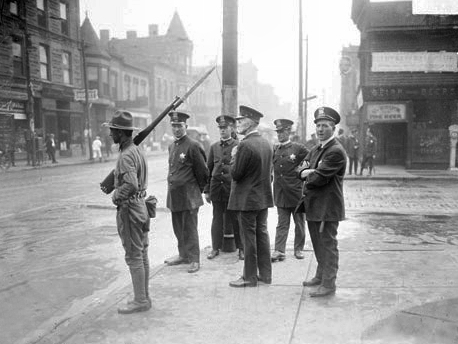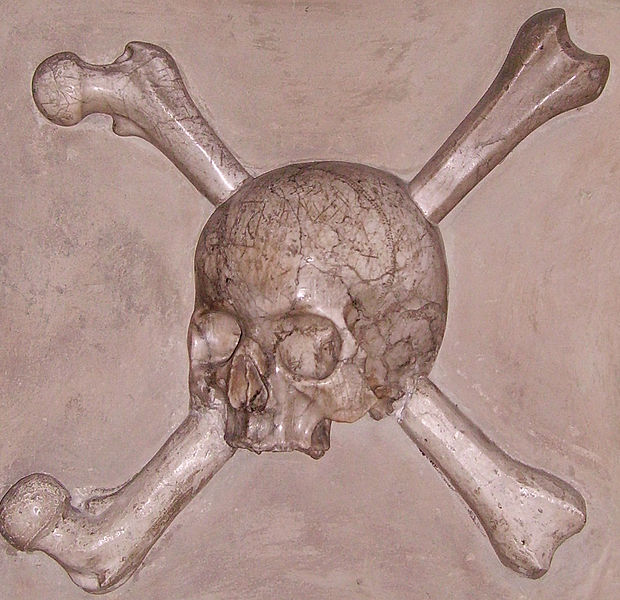
Salafists in Germany have attracted increasing attention in recent weeks with their campaign to hand out millions of free Korans. What, though, is their ultimate goal? Some sell Islamism like it is pop-culture and openly call for holy war, even under the watchful eye of the authorities.
Mohamed Mahmoud sits on his bed and tries to keep his cat away from his visitor. He is wearing the Pakistani traditional dress known as shalwar kameez, and light-brown pakol, the hat worn by Pashtuns. “The Prophet Muhammad also had a cat,” says the 26-year-old with a smile, sensing our surprise. On the wall behind him is a black flag of the sort often seen in videos from al-Qaida and similar organizations, with the creed of the Muslim faith written on it in Arab letters: There is no god but God, and Muhammad is the messenger of God. “My goal in life is victory or shahada, the martyr’s death,” says Mahmoud, who has made a name for himself in the global jihadist movement as Abu Usama al-Gharib.
Despite appearances, however, Mahmoud is not a mujahid in the Hindu Kush. Rather, he is sitting in a studio apartment in a small city near Frankfurt. The apartment building is in the center of the town, next to a pharmacy and a Turkish diner. For him, the world outside is the world of the “kuffar,” or infidels. Mahmoud has a single mission: He wants to convert the infidels to Salafism, the ultra conservative interpretation of the Koran that has triggered a debate in Germany over the limits of religious freedom.
“That’s what I stand for, and that’s what I’ll die for,” says Mahmoud, born in Austria to Egyptian immigrant parents. So far, he feels that society hasn’t understood him and his religious zeal. But most great leaders, he says, only gained true recognition after death.
Mahmoud also sees himself as a leader, an appointee of Allah in the diaspora. He is in enemy country, and religion is his combat zone. In the world that he wants to establish in Western Europe, there would be stonings and floggings. Mahmoud and his radical comrades-in-arms are fighting for a sort of European caliphate governed by the Shariah instead of secular law. To that end, he is building a nationwide network in Germany called “Millatu-Ibrahim,” which supports the actions of Frankfurt imam Ibrahim Abou Nagie, whose helpers are currently handing out free Korans in the downtown pedestrian zones of German cities.
Men like Abou Nagie, Mahmoud and his friend Denis Cuspert, a former gangsta rapper who is now proselytizing at Mahmoud’s side, represent a challenge to democracy. They use words as weapons, and they take advantage of the leeway afforded by freedom of expression in a society that treats religious freedom as an important value. They stretch the constitutional state to its absolute limit, and sometimes beyond, with their acts of provocation and agitation.
Salafism “doesn’t fit into a free society, like the one we have here in Germany,” says German Interior Minister Hans-Peter Friedrich, a member of the conservative Christian Social Union (CSU). But even Friedrich lacks a strategy for dealing with bearded young men wearing long robes, and holding German passports, who have been distributing the Koran in Germany for several weeks now, just as the Jehovah’s Witnesses once distributed their religious magazine, The Watchtower.
The conflict with agitators like Mahmoud and Abu Nagie is one being waged with administrative sanctions, the law and surveillance. It also, however, represents an attempt to grapple with the question as to what motivates the Salafists and why their message is reaching an astonishingly large number of young people. To understand the fascination that such an archaic version of Islam can have, and how it is preached today, one has to listen to young men like Mahmoud.
On his computer in his apartment, there is an appeal to break Filiz Gelowicz out of prison. Filiz is the wife of Fritz Gelowicz, one of the terrorists convicted in 2010 of planning to attack US military installations in Germany. She is in prison for having raised money for jihad. “How can I, as a Muslim, sleep in peace or eat when my sisters in prison are suffering?” Mahmoud asks. His eyes well up with tears and he buries his face in his hands. Mahmoud becomes intoxicated with revolutionary pathos. The front line, for him, is where good mujahedin are pitted against bad Christians.
The telephone rings. It’s someone from the bank across the street, calling to tell him that he is not being allowed to open an account there. “Why not?” he asks the woman on the telephone. “For reasons of corporate policy,” she replies. Mahmoud, who is unemployed, has plenty of time to think about things like corporate policies. “I can’t open an account,” he says, “because they see me as a security risk.” His wife pays for the apartment.
German security authorities are alarmed by the determination and aggressiveness with which Mahmoud and his fellow Salafists are converting young Germans to Islam. The police and the Federal Office for the Protection of the Constitution (BfV), Germany’s domestic intelligence agency, believe that he is one of the most dangerous Islamists in the German-speaking countries. Authorities in his home state of Hesse have paid several visits to his home.
“I don’t give a damn that they think I’m dangerous,” he says. He is comfortable living in small-town Germany. A bed against the wall and a table with a few books on it, he doesn’t need more than that, he says. And a computer, of course. “The Internet is our weapon,” he says, takes a large sip of Red Bull and smiles.
Activists like Mahmoud are very modern when it comes to energy drinks and the Internet as a platform for networking and propaganda. But they are very old-fashioned when it comes to content.
Spiegel has the full article











